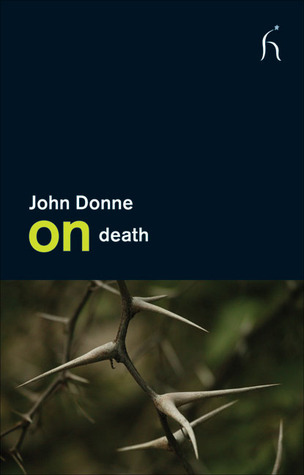- Bible
- Read the Bible
- Bible Versions
- Verse of the Day
- Reading Plans
- Verses by Topic
- Books of the Bible
- Bible Images
- Study
- Commentaries
- Concordances
- Dictionaries
- Encyclopedias
- Sermons
- Bible Atlas & Maps
- BP Wiki
- Devotionals
- Today's Devotionals
- Light of the World
- All Devotionals
- Inspirational Quotes
- More
- Picture Quotes
- Videos
- Inspirational
- Bible Study
- What The Bible Says
- Bible Q&As
- Daily Bread
- Bible by Genre
- Bible Stories
- Random Bible Verse
- Community
- Store
On Death
Dean of St. Paul’s, John Donne was feted in his day not just as a poet but also as an inspired and inspiring preacher, and these four extended meditations on death are amongst his most powerful and dramatic writings. The magnificent “Death’s Duel” is published here alongside his Lent sermons for the two previous years (1628 and 1629), along with his Easter Day sermon of 1619, preached on the occasion of the King’s sickness. Together they create a fascinating study of early 17th-century attitudes towards death.
Dean of St. Paul’s, John Donne was feted in his day not just as a poet but also as an inspired and inspiring preacher, and these four extended meditations on death are amongst his most powerful and dramatic writings. The magnificent “Death’s Duel” is published here alongside his Lent sermons for the two previous years (1628 and 1629), along with his Easter Day sermon of 1619, preached on the occasion of the King’s sickness. Together they create a fascinating study of early 17th-century attitudes towards death.
Dean of St. Paul’s, John Donne was feted in his day not just as a poet but also as an inspired and inspiring preacher, and these four extended meditations on death are amongst his most powerful and dramatic writings. The magnificent “Death’s Duel” is published here alongside his Lent sermons for the two previous years (1628 and 1629), along with his Easter Day sermon of 1619, preached on the occasion of the King’s sickness. Together they create a fascinating study of early 17th-century attitudes towards death.
Dean of St. Paul’s, John Donne was feted in his day not just as a poet but also as an inspired and inspiring preacher, and these four extended meditations on death are amongst his most powerful and dramatic writings. The magnificent “Death’s Duel” is published here alongside his Lent sermons for the two previous years (1628 and 1629), along with his Easter Day sermon of 1619, preached on the occasion of the King’s sickness. Together they create a fascinating study of early 17th-century attitudes towards death.BUY NOW
Published October 15th 2008 by Hesperus Press (first published April 28th 2008)

Despite his great education and poetic talents, he lived in poverty for several years, relying heavily on wealthy friends. In 1615 he became an Anglican priest and, in 1621, was appointed the Dean of St Paul's Cathedral in London.... Show more